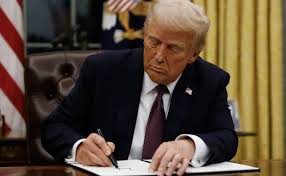Donald Trump’s Stance on the Gaza Conflict: An Overview

Introduction
The ongoing conflict in Gaza has been a focal point of international discourse, with implications that extend beyond the region. Donald Trump, the former President of the United States, has been vocal about his perspective on the conflict, seeking to influence public opinion and policy both domestically and abroad. Understanding Trump’s stance is crucial for comprehending the broader geopolitical dynamics at play, especially given his previous administration’s significant role in Middle Eastern affairs.
Trump’s Historical Position
During his presidency, Trump took several controversial actions regarding Israel and Palestine that shaped the landscape of the Gaza conflict. Notably, he recognised Jerusalem as Israel’s capital in 2017, a decision that sparked protests and heightened tensions in the region. Trump’s administration also brokered the Abraham Accords, normalising relations between Israel and several Arab nations, which was aimed at reducing hostilities and promoting peace. However, critics argued that his policies undermined Palestinian claims and further complicated the situation in Gaza.
Recent Comments and Actions
As the conflict has escalated in recent months, Trump’s comments have continued to attract attention. He characterised Hamas actions as acts of terrorism and voiced unwavering support for Israel, stating that the U.S. should stand firmly behind its ally. He accused the Biden administration of weakness in handling the situation and called for a stronger military posture to counter threats from Hamas. Furthermore, Trump’s rhetoric has resonated with his political base, who largely view him as a strong supporter of Israel.
Reactions and Implications
Trump’s statements and actions have drawn mixed reactions. Supporters laud his unwavering support for Israel, believing it strengthens U.S.-Israel relations, while critics argue that such a stance exacerbates tensions and overlooks the humanitarian crisis in Gaza. International observers caution that a lack of balanced diplomacy could impede efforts towards a peaceful resolution to the Israeli-Palestinian conflict.
Conclusion
Donald Trump’s approach to the Gaza conflict reflects his broader foreign policy philosophy, which emphasises strong alliances and military readiness. As the situation in Gaza continues to evolve, Trump’s influence remains a topic of significant interest, particularly as he positions himself for a potential return to political office. For readers, understanding Trump’s stance is crucial for grasping the complexities of the Gaza conflict and the potential trajectories of U.S. foreign policy in the region in the coming years.









